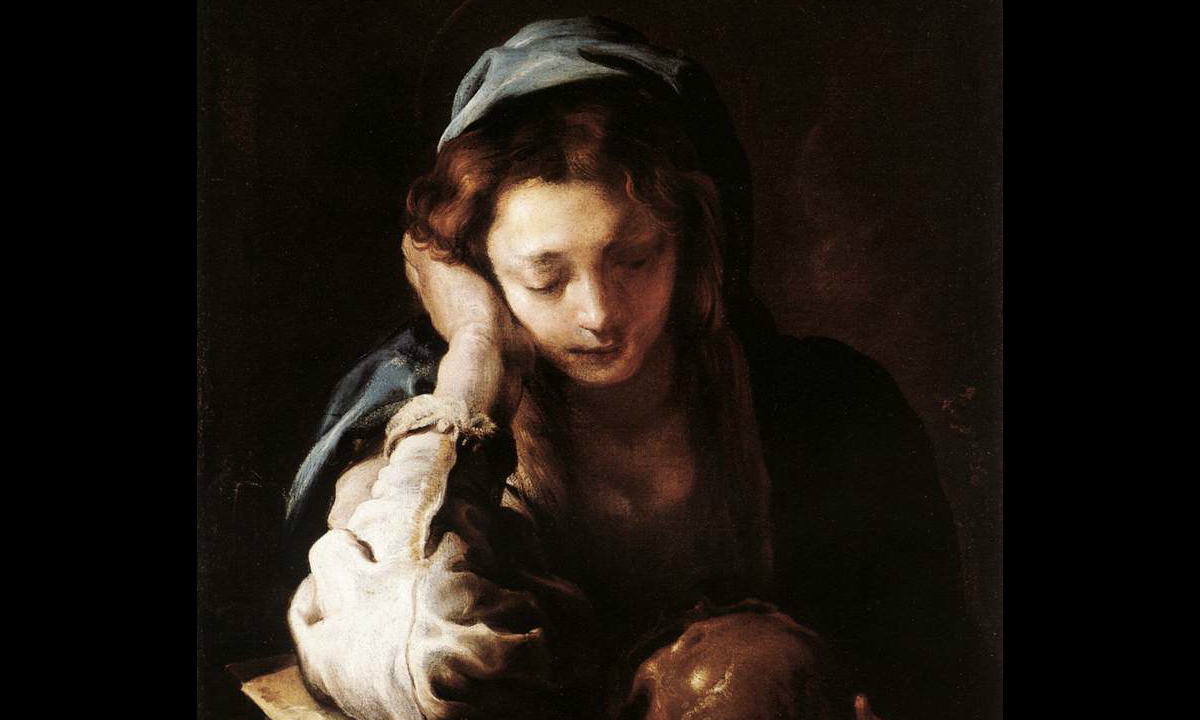Editor’s note: This is the tenth post in our newest series, reflecting on the Hillbilly Thomists’ recent, self-titled album. The series will run each Tuesday and Thursday throughout the Easter season. Read the whole series here. This post concerns the song “What a Friend We Have in Jesus,” which you can listen to here.
Christianity proposes a radical vision of reality. This is not primarily an intellectual exercise, like a researcher trying to create a model explaining the outbreak of a disease. We do not sort through God-models in our heads until we find one that we like. The Christian vision is far greater; it is the vision of friendship with Jesus. The Hillbilly Thomists, in their song “What a Friend We Have in Jesus,” propose the most basic act of this friendship: “Take it to the Lord in prayer.” This means everything. We must bring to Jesus not only our joys and successes, but our fears and failures as well. Only then can we see the world as it truly is, as the unfolding of God’s love for us.
It is no absurd claim that we live in a troubled world. Unfortunately, this discussion is often limited to sociological and political realms. Anyone, however, who examines carefully his own experience of life will know that this effect goes all the way down. Whether we are trapped in indecision, unable to give up a bad habit, afraid to strive for excellence, or ashamed of something we have done (or worse, become), we are all aware of this internal disorder. It expands from ourselves to our families and social circles, to our societies, and ultimately, to the whole world. We are “weak and heavy laden / Cumbered with a load of care.”
Karl Marx famously said that “religion is the opium of the masses.” His point was that religion provides an illusory happiness in response to the distress of the oppressed. For Marx, we must therefore leave behind religion and fix the real problems by radically reforming society. He failed, however, to see religion as a transforming friendship. He denied the knowledge of the true meaning of all creation, obtained only through friendship with Jesus. He saw the world only as a collection of people and property and dollars and cents.
It is likewise tempting for us, when troubled, discouraged, and surrounded by distractions, to forget Jesus. We spurn the divine friendship and rely on ourselves or created things. We “exchange the glory of God for the image of an ox that eats grass” (Ps. 106:20). Perhaps we tell ourselves that when we have more time, or finish overcoming whatever current obstacle we face, we will turn back to Jesus. Worse, we may entirely forget God and obsess over our own efforts as if we could control everything. And so we lose the Christian vision. But it is in our difficulties that we most need the transforming vision that only the friend of Jesus can receive:
O what peace we often forfeit
O the needless pain we bear
All because we do not carry
Everything to God in prayer
As Pope Benedict XVI teaches, “Being Christian is not the result of an ethical choice or a lofty idea, but the encounter with an event, a person, which gives life a new horizon and a decisive direction” (Deus Caritas Est, ¶1). God grants us a relationship with him, deepened by the death and Resurrection of Christ. This is incomparably greater than any merely human platform for improving ourselves or our world. It is the knowledge of ourselves as we really are, as friends of Jesus, destined for nothing less than union with him. We have the “privilege to carry / Everything to God in prayer.”
What is there in the world that can compare to so great a gift? What poverty is there in the world that can compare to its lack? The whole creation proclaims to us the greatness of our savior. We cannot ignore an offer of such a friendship. It is an invitation open and accessible to us all. But we need to pray to this Friend. Whether we are delighting in the joys of life or overwhelmed with difficulties, let us “find a friend so faithful, who will all our sorrows share….Take it to the Lord in prayer.”
✠
Image: Domenico Fetti, The Repentant St Mary Magdalene







